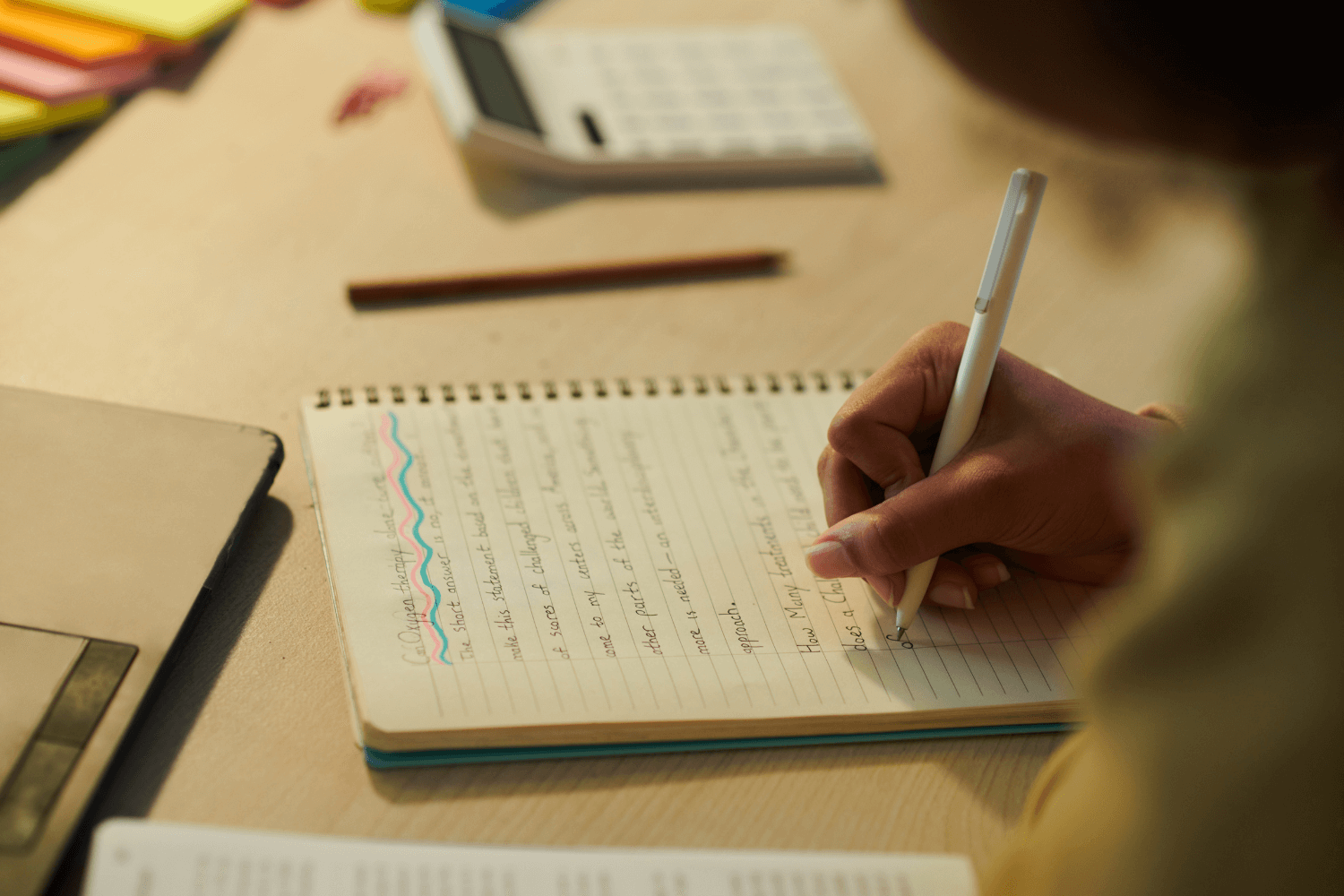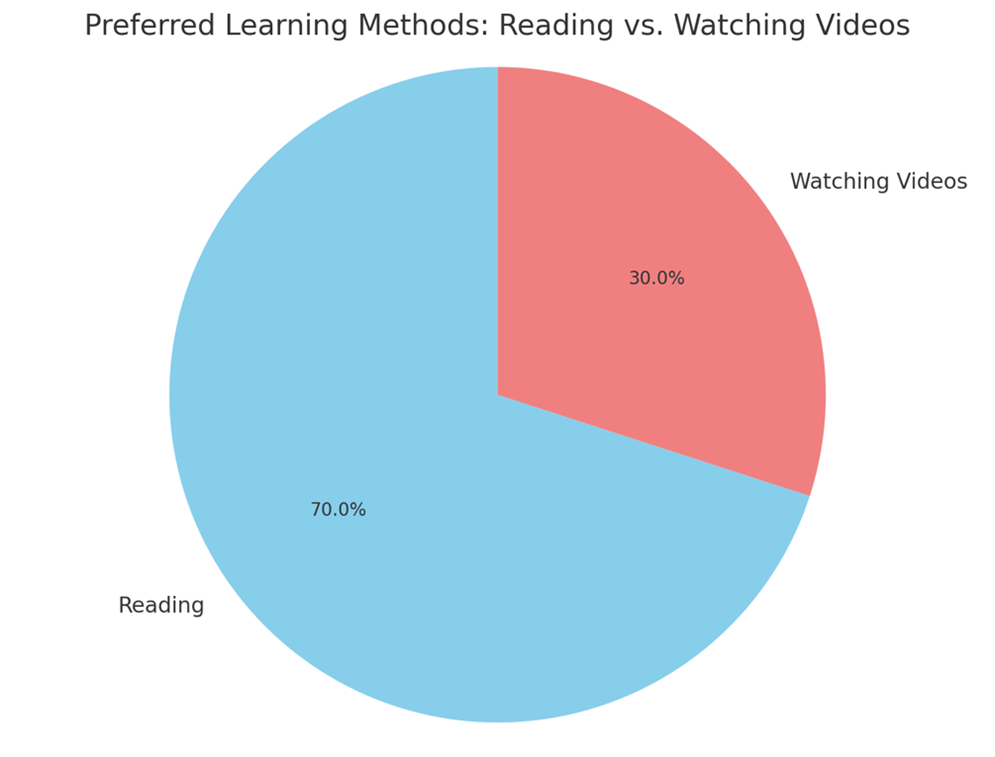General
The Power of the Written Word: Why Reading Still Holds Its Ground in a Video-Obsessed World

In today’s world of YouTube, TikTok, and endless Netflix series, it seems like everyone’s glued to a screen.
Whether it’s the latest viral video or a new episode of your favourite series, video content is king. But does that mean the written word is on its way out?
Spoiler alert: It’s not. In fact, reading still holds major cognitive benefits that videos can’t quite match.
Let’s explore why reading remains a crucial tool for learning, memory retention, and professional growth. And why you should still make time to sit down with a good book, even in a video-obsessed world.
Why Reading Is Still King in the Age of Video
The rise of video content doesn’t mean reading is losing its edge. Sure, videos are great for quick entertainment and learning new skills in bite-sized chunks.
But if you want to engage your brain and retain information longer, reading is the way to go.
- Reading Encourages Deeper Focus
- Videos are often multitask-heavy. You’re scrolling through social media while watching a video, replying to a message, or getting distracted by other tabs.
- Reading, however, requires you to focus fully on the material.
- This single-tasking helps your brain concentrate, absorbing more information at once.
🧠 Fun Fact: Studies show that reading can improve concentration and attention span, which can carry over into your everyday tasks.
- Better Memory Retention with Reading
- Reading allows your brain to process information more deeply than passive video consumption.
- It requires you to visualise, recall, and reflect on the content, which builds a stronger memory of the material.
- When you watch a video, your brain doesn’t need to do much work. It absorbs the content passively, leading to lower retention.
🧠 Statistic: People who read books are shown to retain 80% of the content long-term compared to just 60% for video watchers.
(Source: National Institutes of Health)
- Reading Builds Critical Thinking Skills
- With reading, you’re often required to think critically, analyse what you’re reading, and connect it to other knowledge.
- This is essential for developing problem-solving skills and a broader understanding of complex topics.
- In contrast, videos usually present content in an easier-to-digest format, which can skip over deeper analysis.
🧠 Real-World Example: Professionals who read extensively in their field are more likely to have stronger analytical skills, making them better problem-solvers.
- Reading Improves Your Vocabulary
- Reading books, especially fiction, exposes you to a larger variety of words and phrases that can expand your vocabulary.
- This doesn’t happen nearly as much with videos, where the language is often simplified to make it accessible to a wider audience.
🧠 Pro Tip: The more you read, the richer your vocabulary becomes, which is great for professional communication, presentations, and even casual conversations!
- Reading for In-Depth Learning
- When it comes to in-depth learning, books are still the go-to resource.
- Whether you’re studying for a test, learning a new subject, or diving deep into a topic, books give you the depth of information that videos simply can’t match.
🧠 Statistic: Research shows that 70% of students prefer using books over videos when studying complex topics.
(Source: Australian Education Council)
The Power of the Written Word vs. Video in Professional Growth
In the workplace, reading offers a clear advantage when it comes to developing new skills and advancing your career.
- Books Provide Structured Learning
- Books tend to provide more structured and organised information compared to the often fragmented nature of videos.
- Whether it’s technical knowledge, leadership strategies, or personal development, books tend to break down concepts step by step.
- Written Content Is More Timeless
- Unlike videos, which can quickly become outdated or lose relevance, books are often timeless.
- Classic works in business, history, and science continue to provide value long after the video content from that same era fades away.
How Videos Still Have a Place
Before you start packing away your Kindle and going back to your old Nokia 3310, it’s important to acknowledge that videos do offer some great advantages:
- Quick information: Videos are fantastic for learning how to do something quickly, like fixing a leaky tap or learning a dance move.
- Entertainment: Sometimes, a book just doesn’t cut it when you’re winding down. Videos can provide the kind of engaging entertainment that books can’t match.
- Visual learning: For people who are visual learners, videos can be very helpful in understanding complex topics like art, science, and anatomy.
What’s Your Learning Preference? Reading vs. Videos

(See pie chart above)
Here’s your pie chart illustrating the preferred learning methods, showing that 70% of people still favour reading over watching videos when it comes to learning. This supports the idea that reading remains the go-to for those seeking deeper comprehension and long-term knowledge retention.
| Learning Method | Percentage of Preference |
| Reading | 70% |
| Watching Videos | 30% |
The Science Behind Reading’s Cognitive Benefits
- Improved Brain Connectivity: Reading increases neural connectivity in the brain, especially in areas responsible for language processing and visualisation.
- Better Emotional Intelligence: Fiction reading is shown to increase empathy, as you immerse yourself in different characters’ emotions and perspectives.
- Reduced Stress: Studies have shown that reading for just 6 minutes a day can lower stress levels by 68%.
(Source: University of Sussex)
Final Word: Reading Still Reigns Supreme
Despite all the flashy, quick content on your phone, reading is still the gold standard for learning, critical thinking, and long-term cognitive health.
Whether you’re in Melbourne, sipping a coffee in a quiet café, or enjoying some downtime in Perth, reading helps you stay sharp, informed, and grounded.
So, next time you reach for your phone to watch the next viral video, maybe consider grabbing a book instead. Your brain will thank you — and so will your future self.
